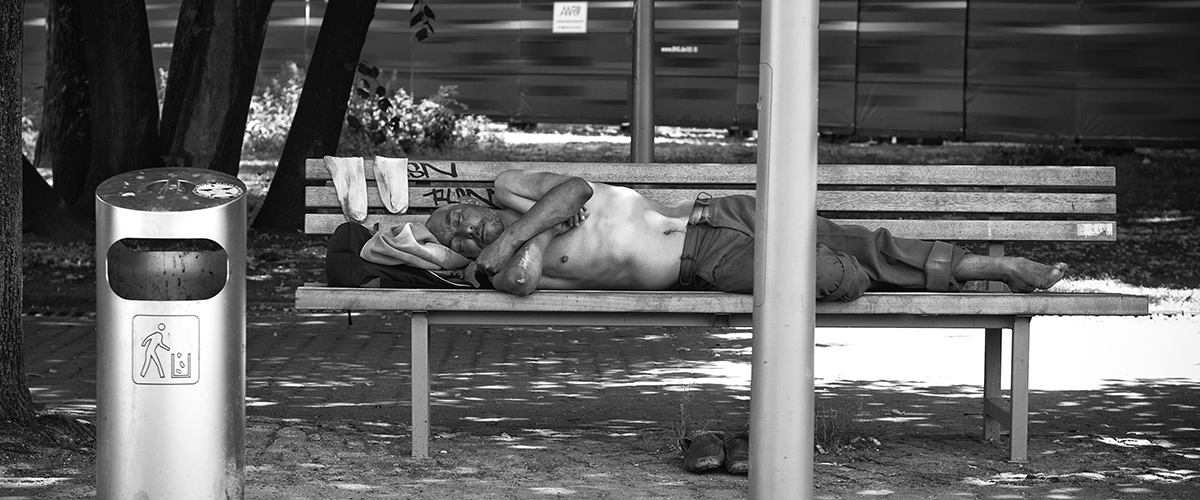Courts Homelessness Interagency Collaboration March 2, 2018
Palm Beach County, like many jurisdictions across the country, faces numerous challenges as it seeks to safely reduce its jail population. One of these challenges is addressing the “frequent users” of our system—people who cycle in and out of our county’s jail, hospital, and behavioral health systems. Many of these people are experiencing their own challenges, including housing instability and mental health problems. County leaders recognize that without addressing these issues—poverty, instability, and untreated mental health conditions—we will never address overuse of our local jail.
Palm Beach County also has a long history of collaboration in addressing challenges within the criminal justice system. Our Criminal Justice Commission was created in 1988 and has regularly gathered key system players around the table to bring meaningful improvement and reform to areas such as pretrial services, pretrial diversion, and reentry, among others. We were able to draw upon this history of collaboration as we worked together to develop responses to our county’s frequent system users. Through this process, we created the Palm Beach County FUSE Project (PBC FUSE), which we plan to implement this year.
FUSE is an acronym for Frequent Users System Engagement, a model for addressing homelessness among our most vulnerable individuals. It was developed by the Corporation for Supportive Housing (CSH), a national organization based in New York City, and has now been adopted by more than 20 jurisdictions around the country, including Mecklenburg County, North Carolina and Harris County, Texas, which are also part of the Challenge Network. The goal of FUSE is to break the cycle of incarceration and homelessness by providing stable housing to people who are identified as the most frequent users of jails, homeless shelters, behavioral health crisis services, and hospitals in Palm Beach County.
Implementation of PBC FUSE will reduce our local jail population by decreasing recidivism among program participants. Concurrently, it will lead to an increase in housing stability and a decrease in reliance on multiple crisis services. Permanent supportive housing is a key factor in decreasing a person’s involvement with the criminal justice system. Nothing stabilizes a person in crisis more than having a home—particularly when necessary services are provided as well.
FUSE participants are identified through data matching. The PBC FUSE Policy Team will develop a list of individuals who were arrested three or more times in the past year. We will then match that list with our homeless and behavioral health crisis centers’ patient lists. (Hospital data will be added later.) After an initial list is developed, these people will be located through a process of “inreach” (homeless shelters, jails, and hospitals) and outreach (streets and parks). Case managers will enlist and engage participants and place them in permanent supportive housing. The managers will then coordinate the procurement of any necessary services. This may include physical and behavioral healthcare (including therapy and treatment), transportation, job training, obtaining identification documents, and accessing benefits.
There has been strong support for PBC FUSE throughout the community from the beginning. Participating organizations are enthusiastic about the project and committed to its success. These include the Criminal Justice Commission, PBC Human Services Department, City of West Palm Beach, Public Defender, State Attorney, Southeast Florida Behavioral Health Network, individual behavioral healthcare providers, agencies that provide housing and services for the homeless, and two of our local hospitals. In addition to the generous funding we’ve received from the John D. and Catherine T. MacArthur Foundation’s Safety and Justice Challenge, we are working with a local foundation which is supportive of the project. We have also been the recipient of local and federal government dollars. The Lord’s Place, a leading agency working with the homeless in our county, recently received a major HUD grant providing for fifteen individual housing units which will be prioritized for our FUSE participants. We will have an initial pilot project serving 25 individuals in 2018 with plans to expand to 100 individuals within two years.
All our stakeholders are working together to identify PBC FUSE participants and help them stabilize and improve their health and their lives. The unique nature of the FUSE project is a key factor in enabling us to maintain collaboration, enthusiasm, and commitment. FUSE cuts across four major crisis systems: criminal justice, homelessness, behavioral health, and physical health. A successful FUSE project can help numerous individuals reclaim their lives. But there is an additional benefit which makes FUSE attractive to stakeholders. It can produce tremendous cost savings. If participants are able to be housed and stabilized, then jails, hospitals, behavioral health crisis centers, and homeless agencies can save a great deal of money as these individuals will no longer be cycling through their doors.
After months of planning, PBC FUSE is nearing the implementation phase. We are optimistic that our efforts will lead to success for both individuals and the community at large.


